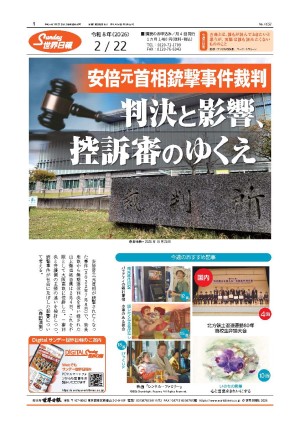聖地への攻撃に懸念/信教の自由委員会 Holy site security concerns religious freedom panel
米国の「国際宗教の自由委員会」の委員らが23日、ワシントンで、世界中で教会や礼拝所などへの攻撃が増加していることを受けて、聖地をいかに守るかについて語った.
委員会のパネルディスカッションで参加者らは、過激派組織「イスラム国」(IS)による「ヨナの墓」の破壊や中国政府によるチベットの修道院の破壊など、宗教施設を標的とした暴力が世界的に増加していることを非難した。パネリストらは、ここ数年間の暴力の増加によって、すでに疎外されていた宗教が脅威を受け、沈黙させられていると指摘、IS、ボコハラム、反ユダヤ白人至上主義者などのグループを非難した.
...【全文を読む】







